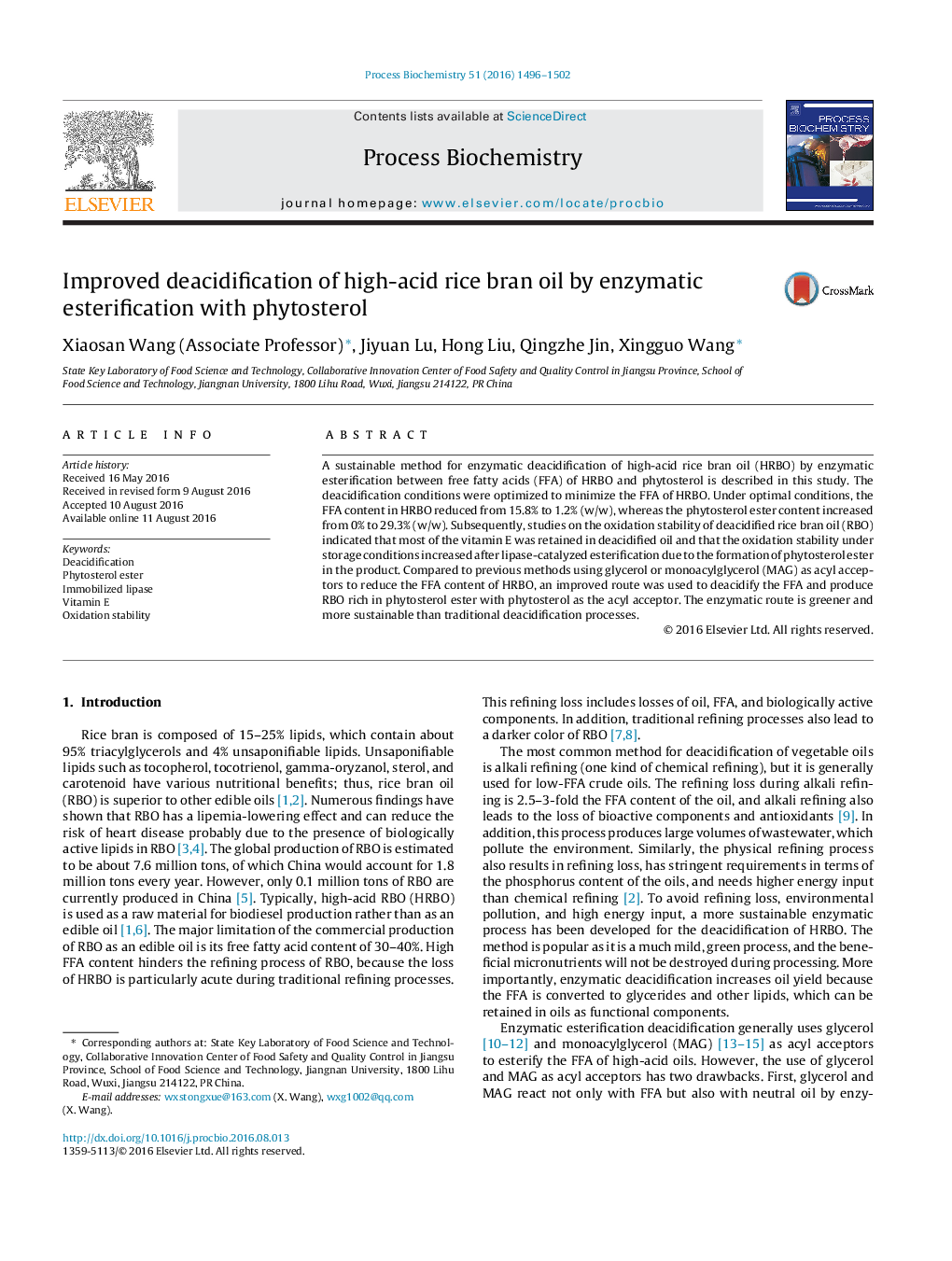| کد مقاله | کد نشریه | سال انتشار | مقاله انگلیسی | نسخه تمام متن |
|---|---|---|---|---|
| 6453021 | 1361514 | 2016 | 7 صفحه PDF | دانلود رایگان |
- The use of phytosterol as an acyl acceptor to deacidify HRBO has received little attention.
- Enzymatic method is greener and more sustainable compared to traditional processes.
- The strategy led to the least loss of vitamin E compared to traditional processes.
- One-pot esterification not only removed FFA, but also increased functionality of oils.
A sustainable method for enzymatic deacidification of high-acid rice bran oil (HRBO) by enzymatic esterification between free fatty acids (FFA) of HRBO and phytosterol is described in this study. The deacidification conditions were optimized to minimize the FFA of HRBO. Under optimal conditions, the FFA content in HRBO reduced from 15.8% to 1.2% (w/w), whereas the phytosterol ester content increased from 0% to 29.3% (w/w). Subsequently, studies on the oxidation stability of deacidified rice bran oil (RBO) indicated that most of the vitamin E was retained in deacidified oil and that the oxidation stability under storage conditions increased after lipase-catalyzed esterification due to the formation of phytosterol ester in the product. Compared to previous methods using glycerol or monoacylglycerol (MAG) as acyl acceptors to reduce the FFA content of HRBO, an improved route was used to deacidify the FFA and produce RBO rich in phytosterol ester with phytosterol as the acyl acceptor. The enzymatic route is greener and more sustainable than traditional deacidification processes.
197
Journal: Process Biochemistry - Volume 51, Issue 10, October 2016, Pages 1496-1502
